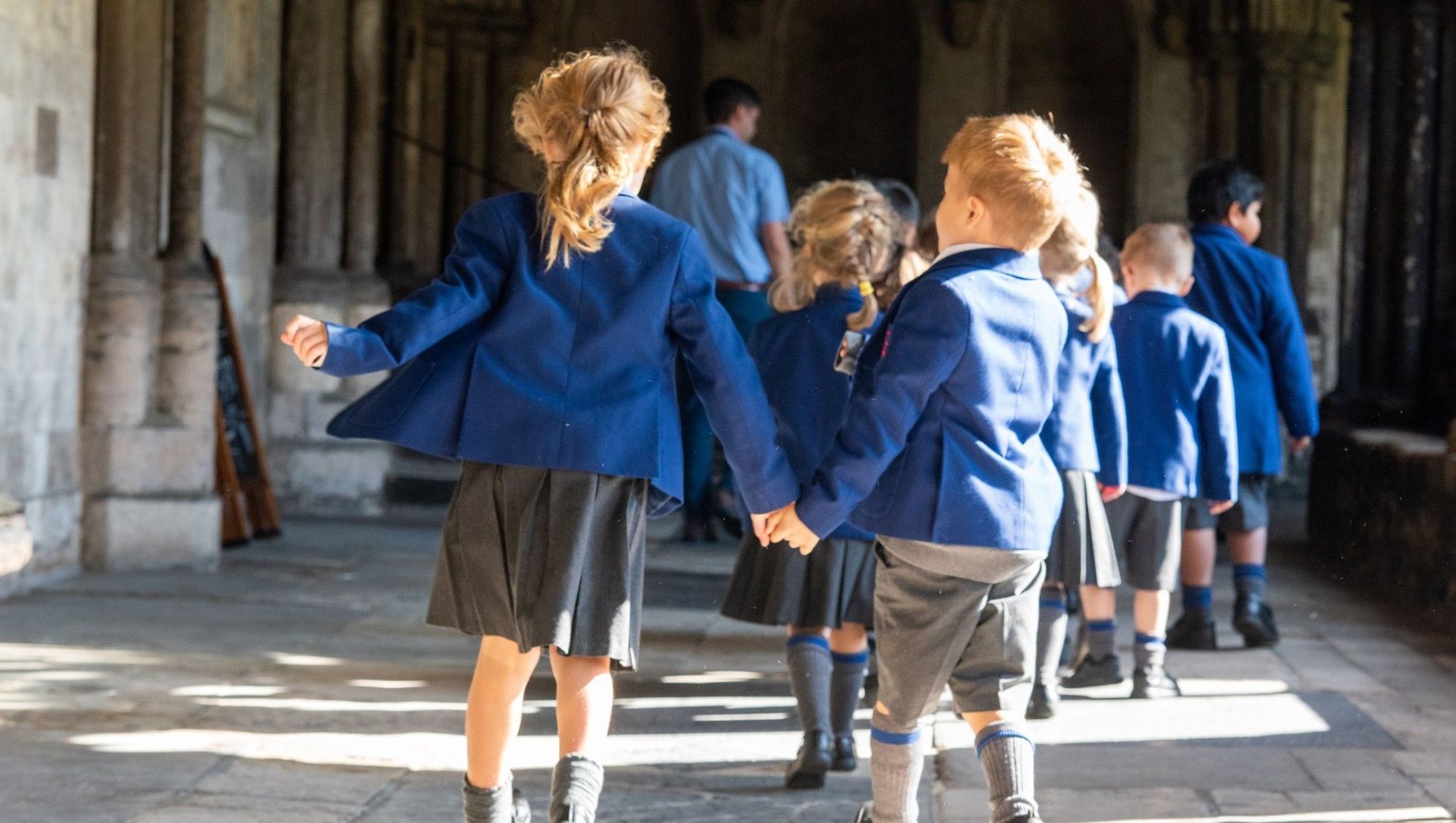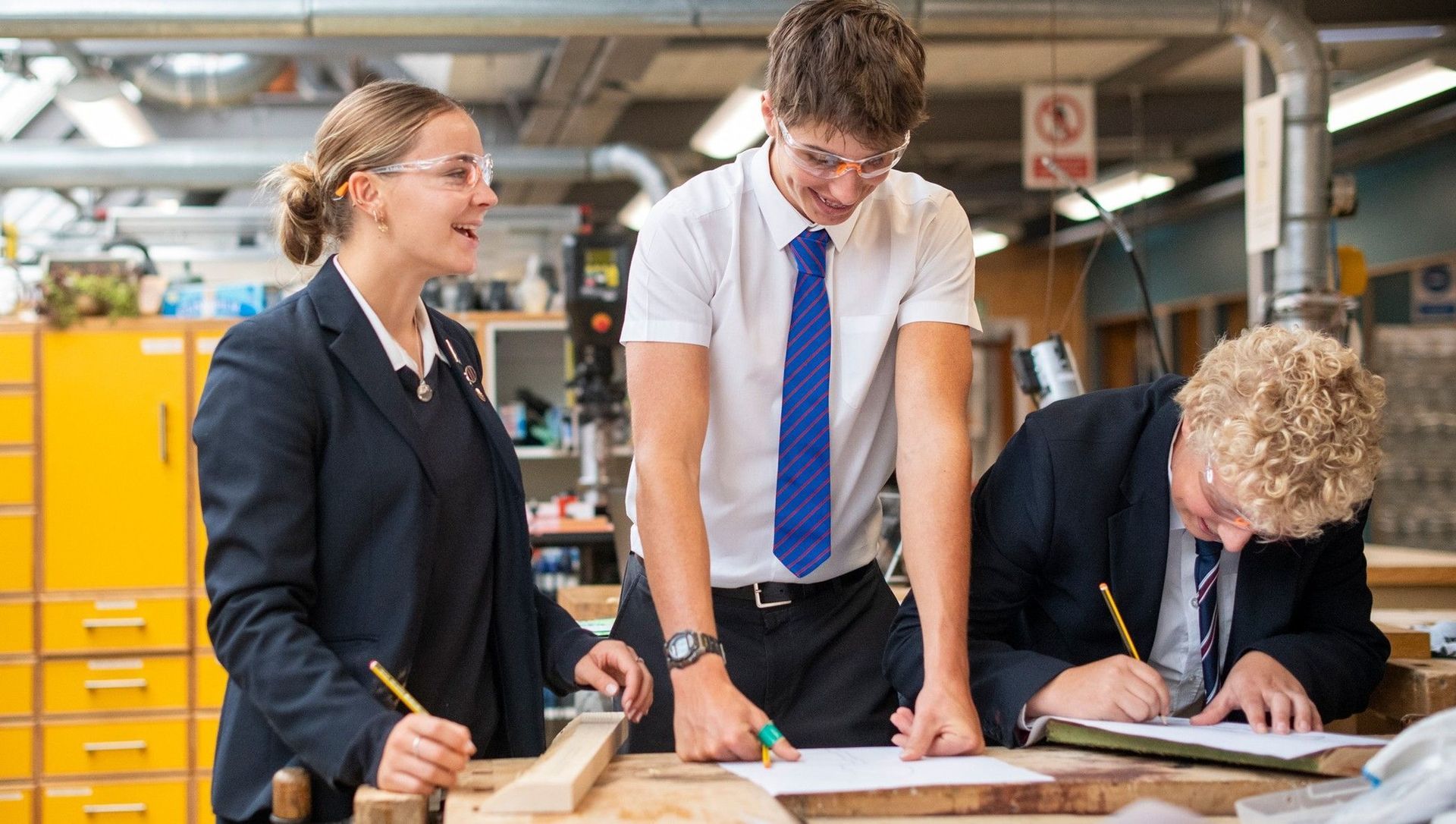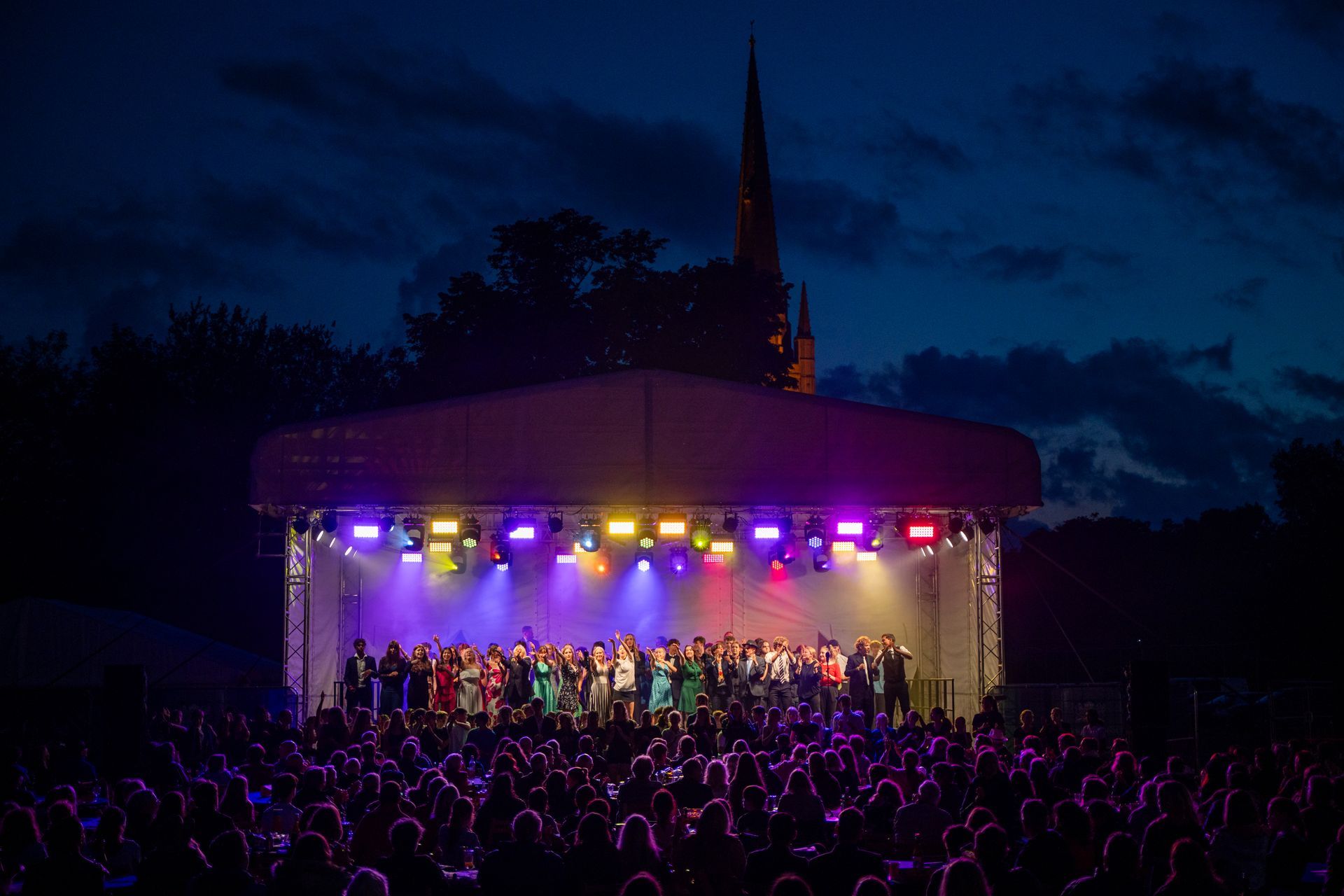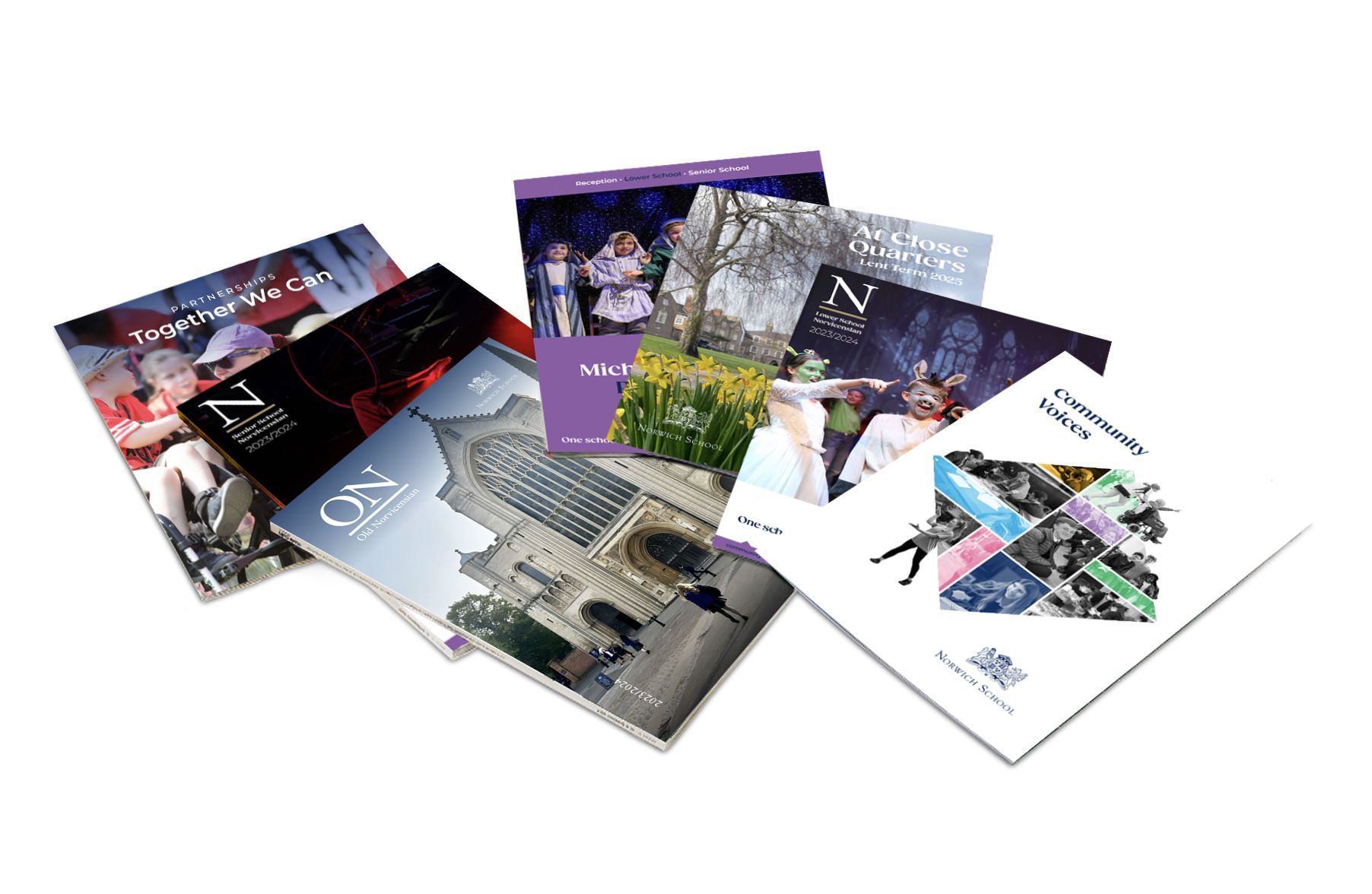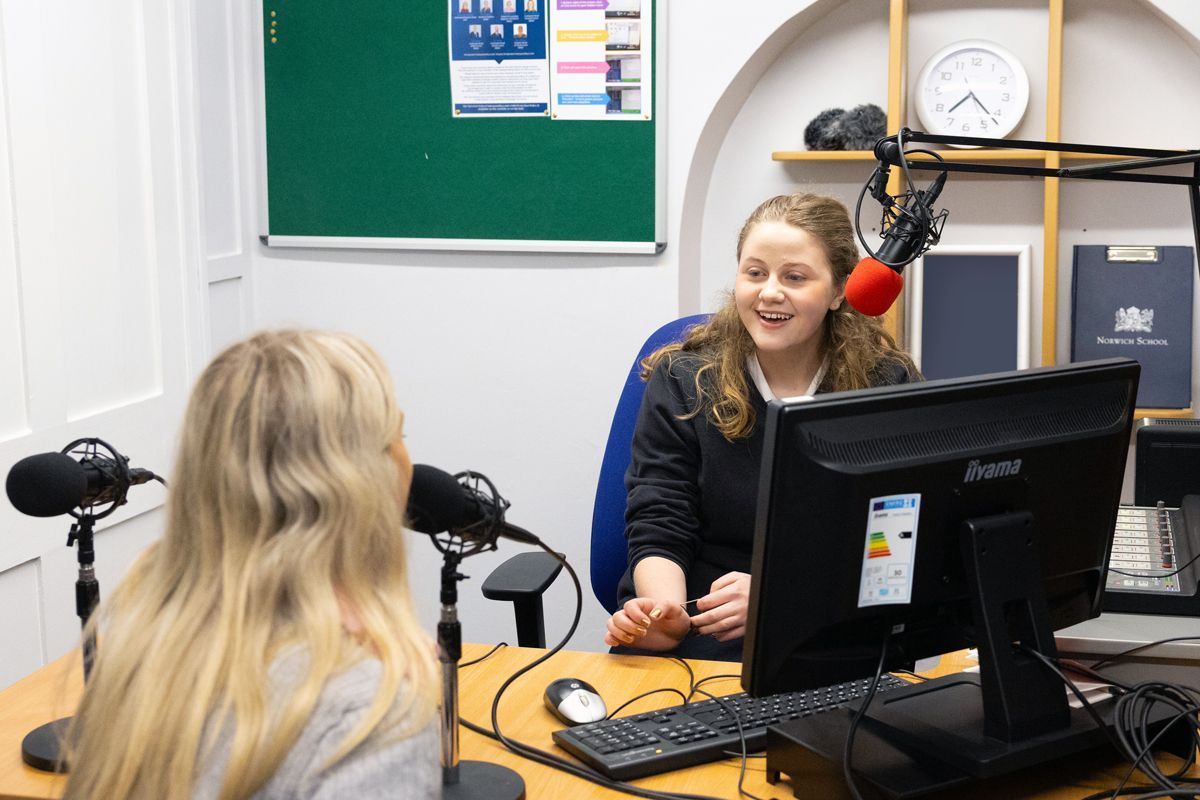News & Events
Latest News From the Senior and Lower Schools
Lower School News
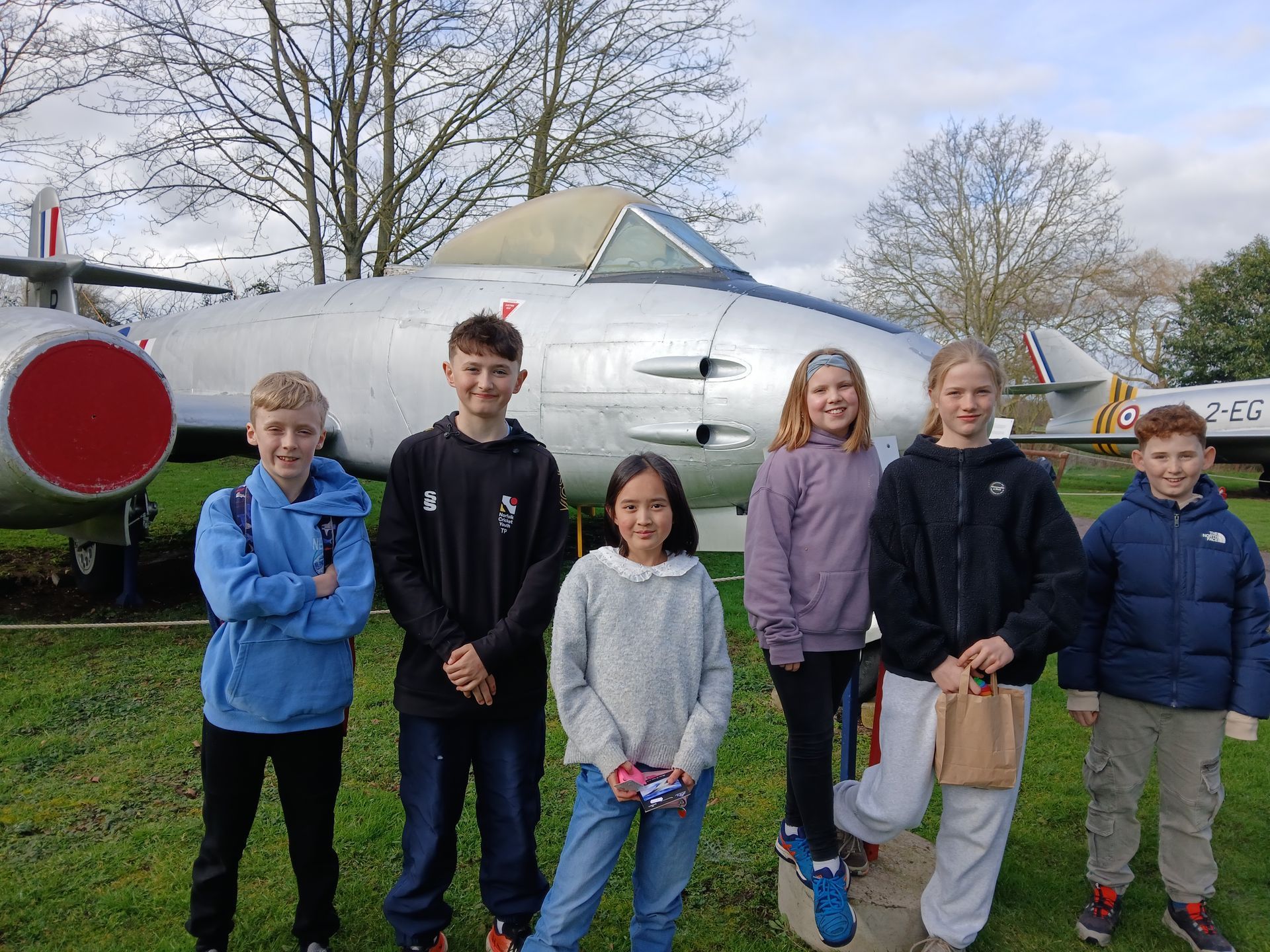
The Jemison Group enjoyed an exciting and immersive visit to The Norfolk & Suffolk Aviation Museum. They had the opportunity to sit in a cockpit and learn how to fly, giving them a taste of what it might be like to be a pilot. They explored the exhibits and were even able to handle some weapons. They also travelled back in time to the Second World War, stepping inside an Anderson Shelter during an air raid in Norwich. As part of the day, pupils learned how to map flight paths, linking history with geography and developing their understanding of navigation. It was a memorable visit that deepened their knowledge and sparked plenty of curiosity.
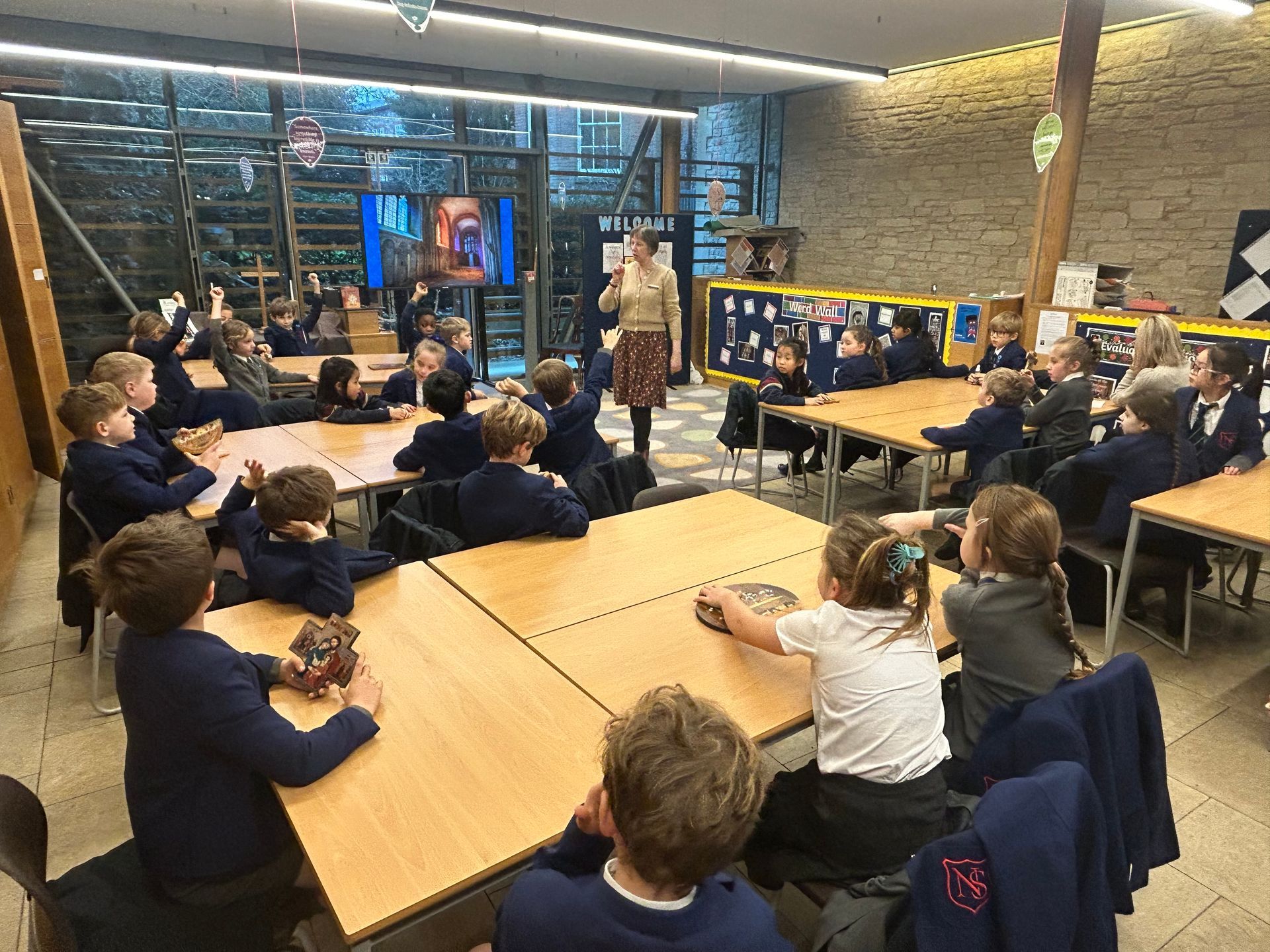
On Tuesday 10 February, Lower Twos visited Norwich Cathedral for a morning of rich, cross-curricular learning. The children explored the significance of stained-glass windows and how they were used to tell Bible stories to people in the past. They learned about the history of St Julian and their connection to Norwich and studied how key moments in Jesus’ life are portrayed through the cathedral windows. Pupils showed curiosity, asked thoughtful questions, and represented the school brilliantly.
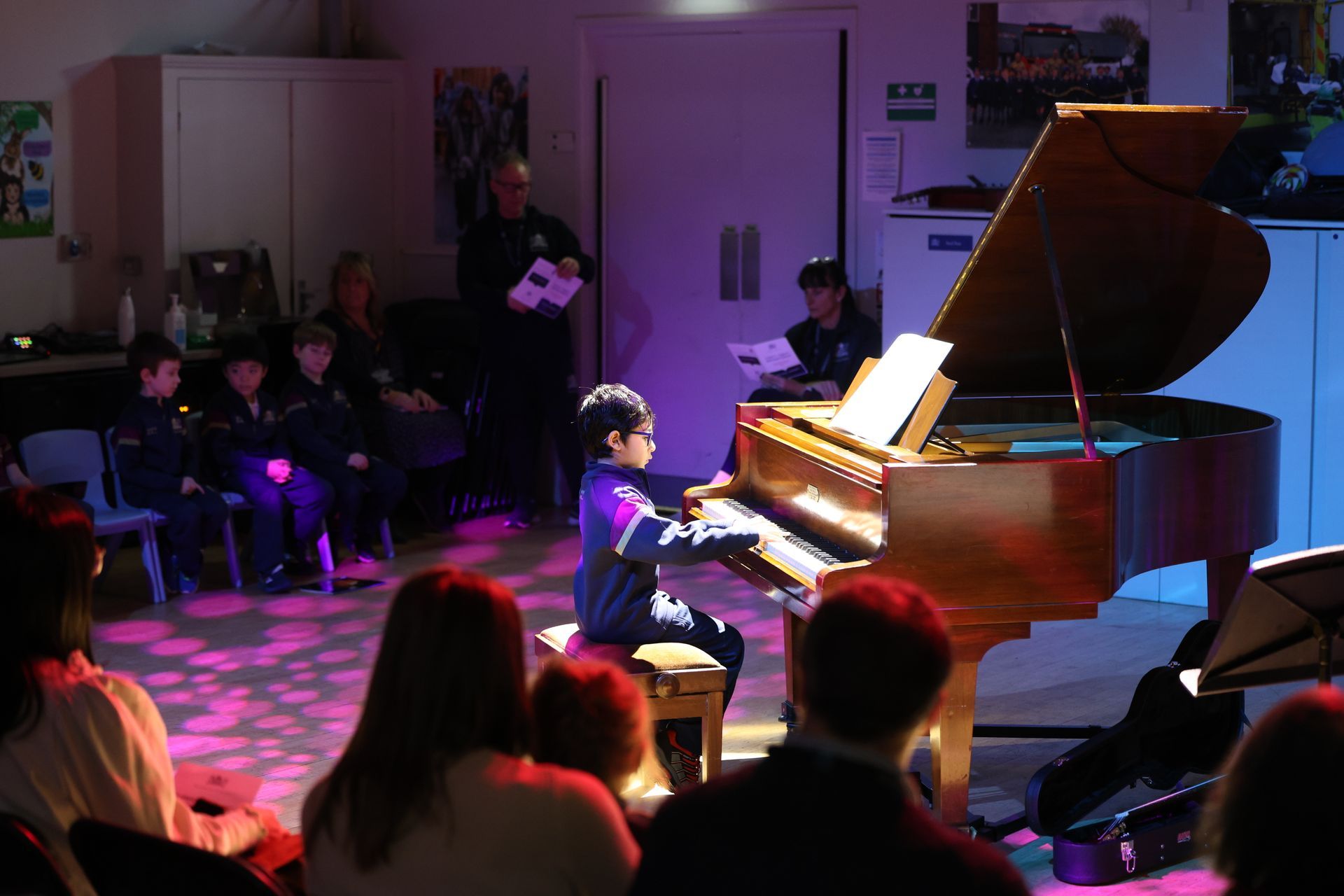
What a joyful, toe-tapping concert it was! The hall buzzing with excitement as very young musicians from Lower 1 and Upper 1 (some performing for the very first time) took to the stage, beaming with pride and confidence. From the very first notes, it was clear this was a celebration not just of music, but of courage, enthusiasm, and the sheer fun of performing. Smiling families filled the room, cameras at the ready, soaking up every moment as each of our Lower School pupils shared their hard work and musical imagination. The piano pieces sparkled with variety and character. Familiar melodies like Ode to Joy floated out warmly and confidently, while playful pieces such as Whirleybird , ABC Playtime , and Up and Down Song bounced along with energy and charm. More atmospheric moments appeared too, from the gentle magic of Walking in the Air to the bouncy rhythms of Minnie Mouse Hits The Town! There were also lovely storytelling moments at the piano, with music inspired by wildlife, farmers, and even a cheerful boat ride or two. Every performance, no matter how short was delivered with huge smiles, careful concentration and an infectious sense of joy. Overall, the L1 and U1 Informal Concert was a heart-warming showcase of young talent and growing confidence. The enthusiasm of the performers, the supportive energy of the audience, and the wide range of music made it a truly uplifting event, one that left everyone applauding loudly and walking away with happy hearts. Head of Music Mr Vine said 'another fantastic concert full of music making at its finest! So proud of our L1 and U1 pupils who worked so hard to get their pieces ready. A big thank you as always, to our fabulous visiting music tutors for all their guidance and preparation! Bravo to all!'
Senior School News
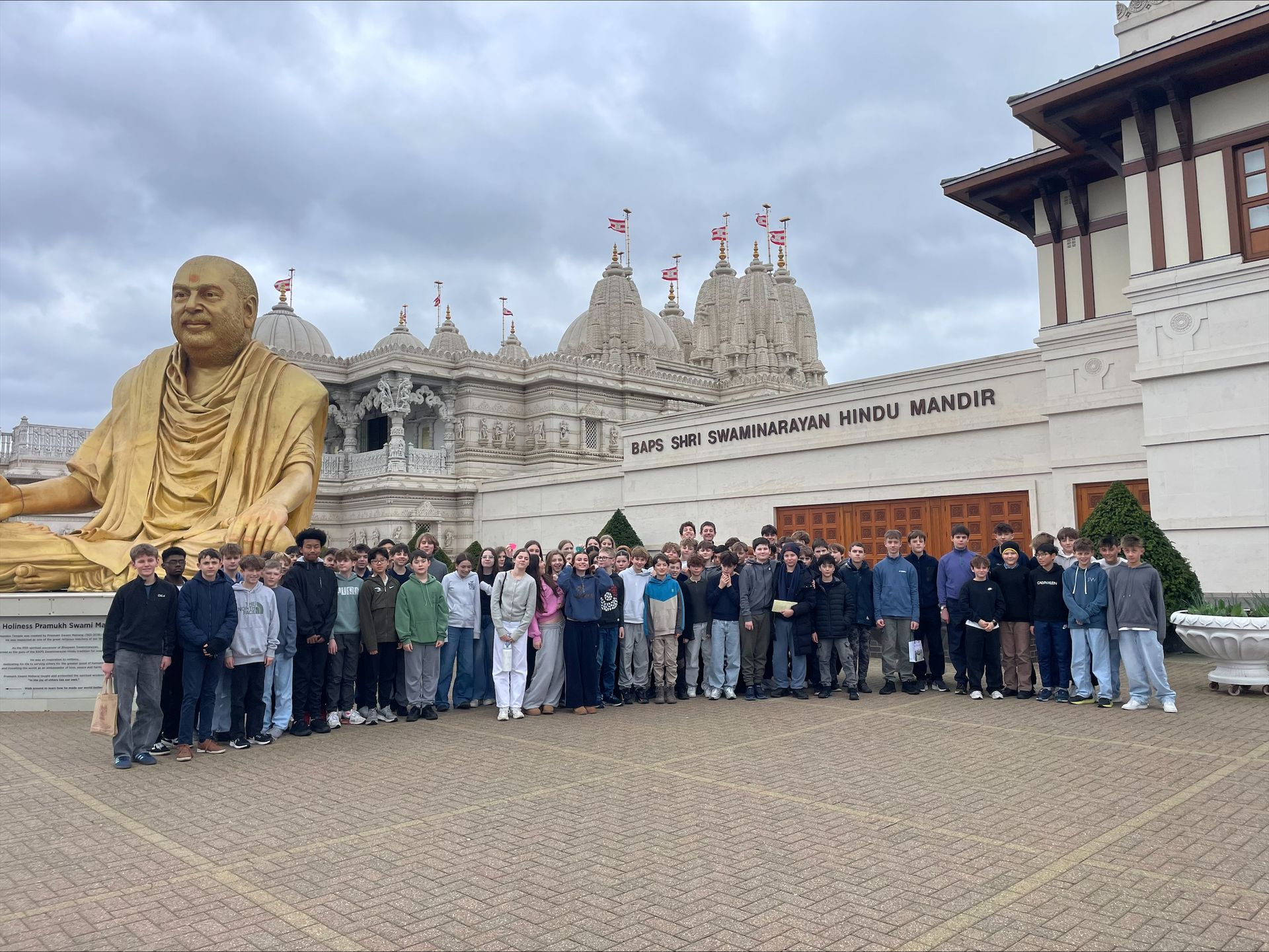
Upper 4 pupils enjoyed an insightful and interesting trip to Neasden Hindu Temple in London on Thursday 26 February. Pupils enjoyed the temple exhibition and were able to observe the Arti ceremony, learning more about Hindu ism to support their studies in class. They enjoyed a talk given by a member of the Temple about how the extraordinary building was built and perhaps the highlight of the trip was the vegetarian curry served at the restaurant afterwards. Mrs Cawkwell would like to thank pupils for behaving respectfully and for staff for their enthusiastic support.
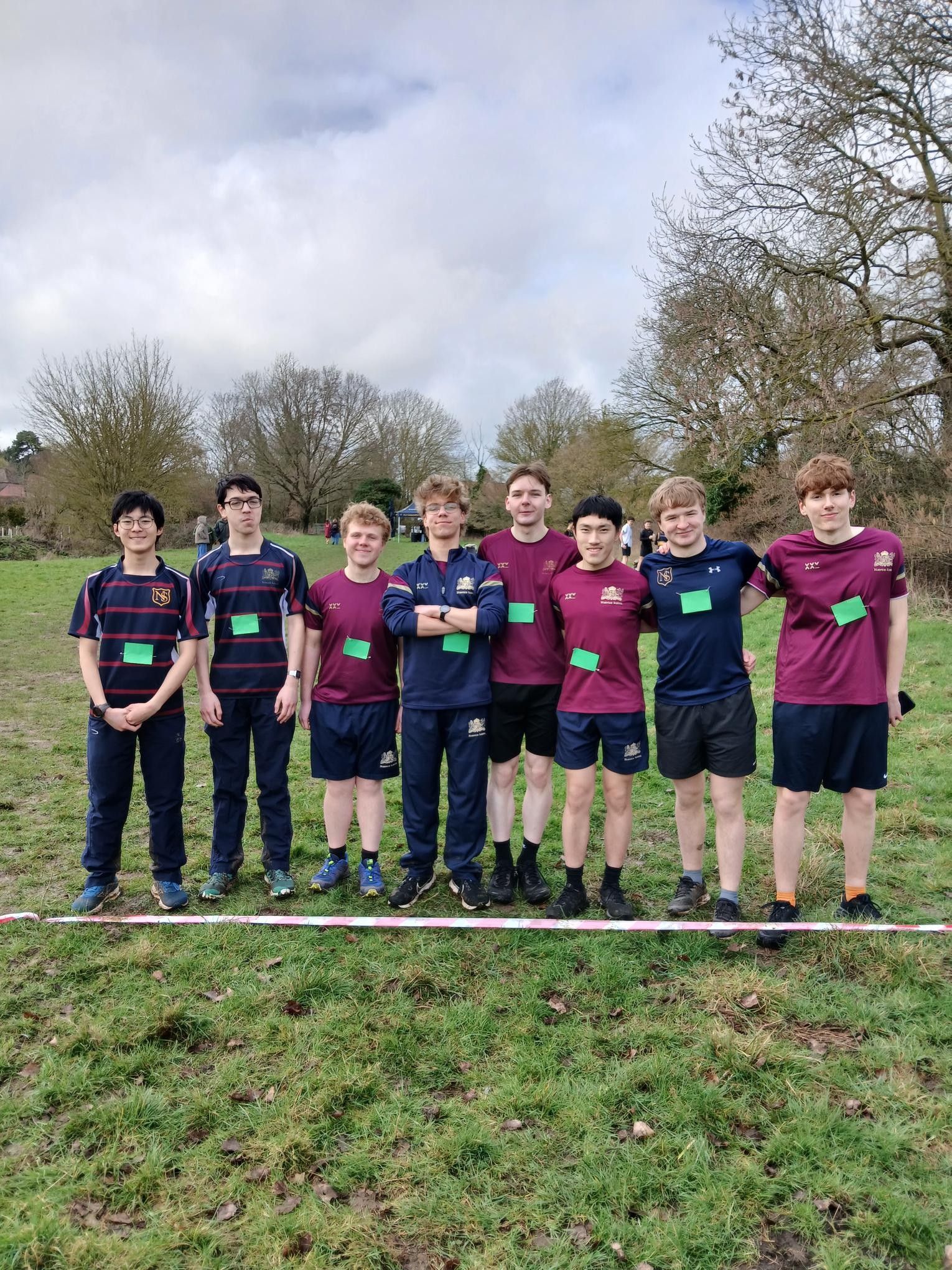
The Cross-Country team enjoyed a drizzly afternoon of racing in Ipswich on Saturday 28 February. The course was extremely muddy making for challenging, slippery conditions. But the Junior Boys managed to stay upright and perform well with Jonas Tam finishing 3rd, Jonty Croskell in 4th and Oscar Parker-Wright in 11th. All season the Senior Girls have dominated the front end of the field and again we had 3 of the top six finishers. On this occasion, it was Amelie Ivie who timed her finish best to take 3rd place ahead of Bea Green in 4th and Olivia Allen in 6th. The team was completed by Simran Chawla coming in 12th. With 8 Senior Boys running, the team prize seems sewn up this year and we had 3 of the top 5 finishers. Over the 7.6km route, Ethan Buskell was fastest on the day, coming 2nd, just ahead of Arthur Dannatt in 3rd and Leon Liu 5th. Leo Pitt was 8th, Jeremy Lo 9 th and Tom Copley, George Yiasimi and Edward Lott completed the dominating team performance all in the top 14. The final race in the series is next Saturday at RHS. Congratulations to all involved!
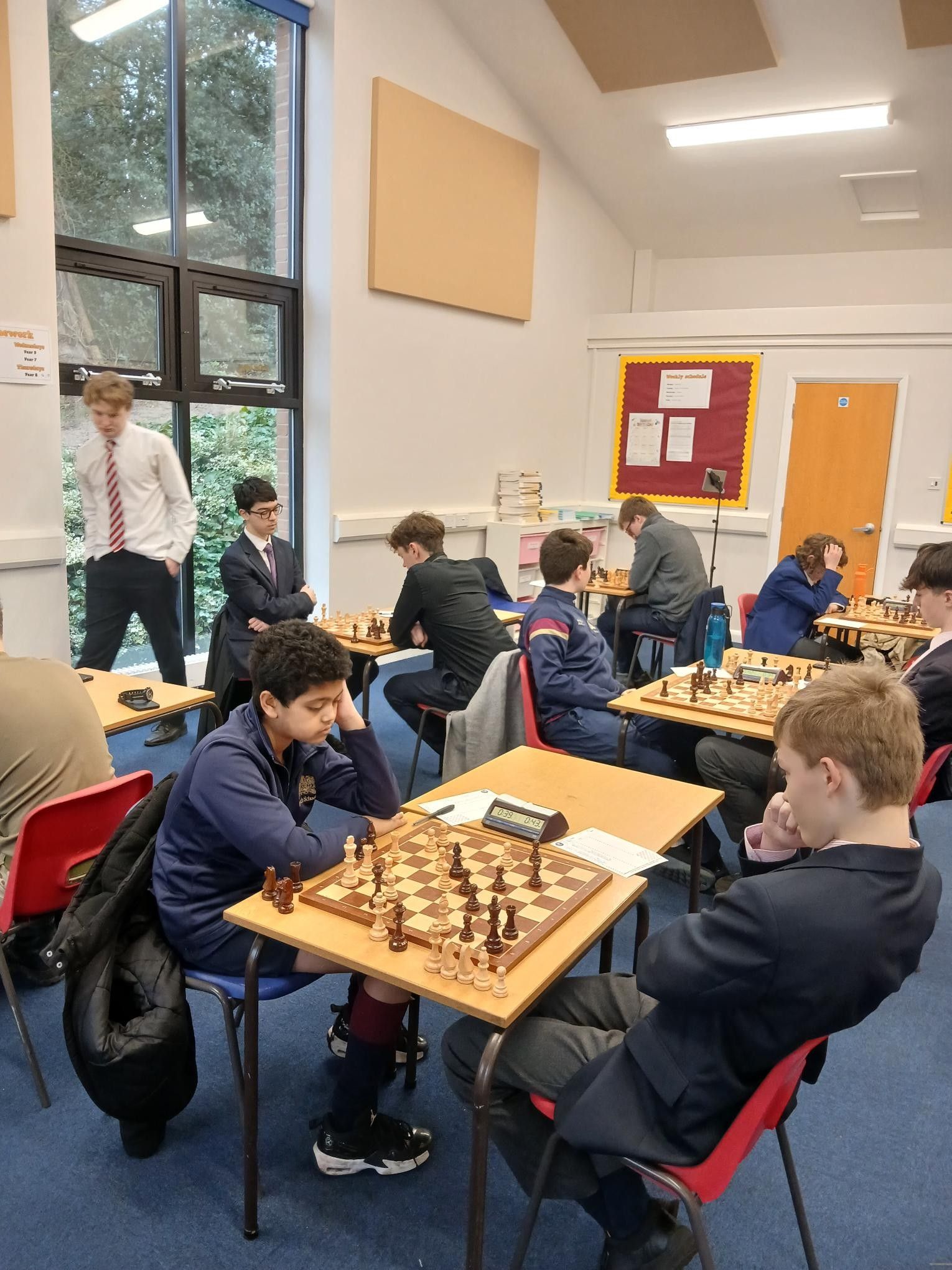
The Chess Team travelled to Woodbridge on Friday 27 February for the second round of the English Schools' Chess Championships. We have had some very close matches against Woodbridge in recent years, and this was no exception. Junaid Ahmed unfortunately lost out in a very sharp match on Board 6, while on Board 5 George Potter's game swung from winning to losing and back again several times before he eventually lost out in the endgame. A dominant win from Merlin Perrow, who won a pawn in the opening and held onto his advantage throughout the game, brought the team back into contention. Then Edward Lott on Board 2 beat a highly rated opponent to draw the team level at 2 games each. Thomas Hsia had a commanding position but was down to his last few seconds as his opponent still had plenty of time on the clock. After a few missteps from both sides, the time pressure proved too much and Thomas allowed a skewer and lost the game. Arthur Dannatt on Board 1 played a good game with the black pieces but also lost out in the end as his opponent's attack in the centre proved decisive. Although all games were competitive, the team unfortunately lost 4-2. Well done to those who played and a reminder that chess club takes place every Monday and Friday lunchtime in P9.
Blog
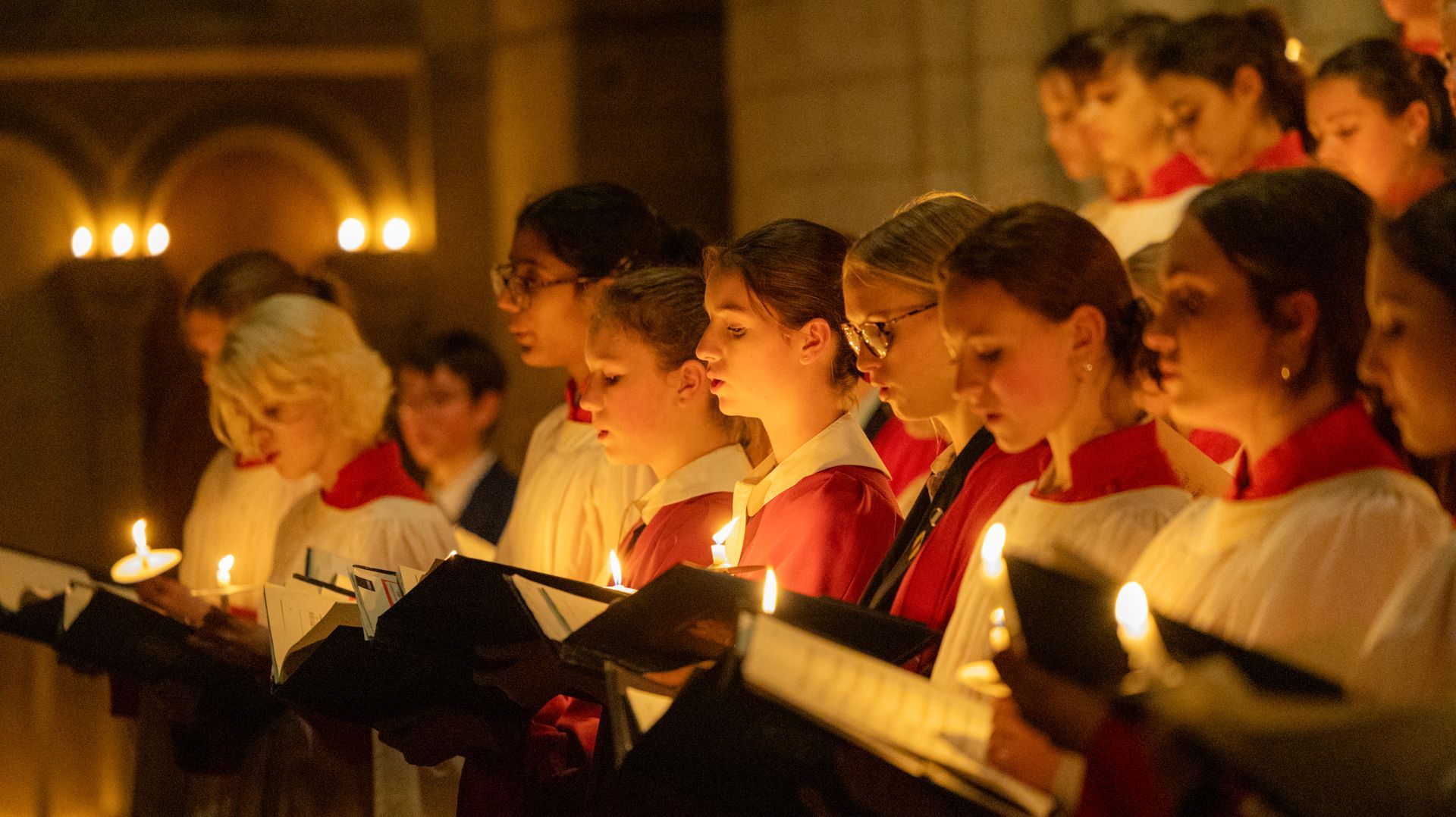
On Saturday 7 May, internationally renowned classical musicians will gather in the beautiful setting of St Nicholas Chapel, King’s Lynn, to honour the music of beloved composer Sir Karl Jenkins during a special fundraising concert hosted by Music in the Burnhams. This concert is the centrepiece of Music in the Burnhams' 2026 programme and will be raising funds for Norfolk and Waveney Mind. The evening, which the composer is due to attend himself, will include performances from the UK’s leading independent orchestra, the British Sinfonietta, the King’s Lynn Festival Chorus and Norwich School Choir, accompanied by acclaimed musicians; cellist Adrian Bradbury, violinists Benedict Holland and Joo Yeon Sir, harpist Alis Huws, euphonium player Dan Thomas, bass baritone Paul Carey Jones and soprano Khrystyna Makar. Conducted by Ben Horden, Music Director of the King’s Lynn Festival Chorus, together they will perform some of Sir Karl’s most celebrated works, such as Cantilena from Symphonic Adiemus, Benedictus from The Armed Man, and Cantata Memoria, which was written in commemoration of the Aberfan disaster. Music in the Burnhams is a charity bringing world-leading classical musicians to venues and schools across north-west Norfolk. Founder, Marian Abramovich, said the Celebration of Sir Karl Jenkins concert will not only provide the opportunity for local communities to witness a rare gathering of renowned musicians, but also support wellbeing services for young people in the area. “We believe classical music should be for all; that’s why we’re passionate about bringing acclaimed musicians to venues across our corner of Norfolk, so as many people as possible - some for the first time - have the chance to experience and enjoy these incredible live performances,” said Marian. “We’re also dedicated to supporting local young people, either through school workshops with visiting musicians or fundraising initiatives. Knowing the intrinsic relationship between music and wellbeing, we’re thrilled to be donating proceeds from this concert - and all our events throughout 2026 - to Norfolk and Waveney Mind to support the expansion of mental health services for young people in West Norfolk.” Marian added: “One of today’s best-loved composers, Sir Karl is a big advocate for mental health support, with his works having previously raised funds for mental health charities aiding military veterans. And one of his most-famous pieces, the poignant Cantata Memoria, pays tribute to those affected by the Aberfan disaster, a terribly tragic event in Welsh history that is approaching its 60 th anniversary this year and left many survivors suffering with profound mental health issues. Sir Karl was therefore a fitting choice for the focus of this major fundraising event.” Music in the Burnhams hopes to raise £20,000 for Norfolk and Waveney Mind by the end of 2026! To book your tickets click here!
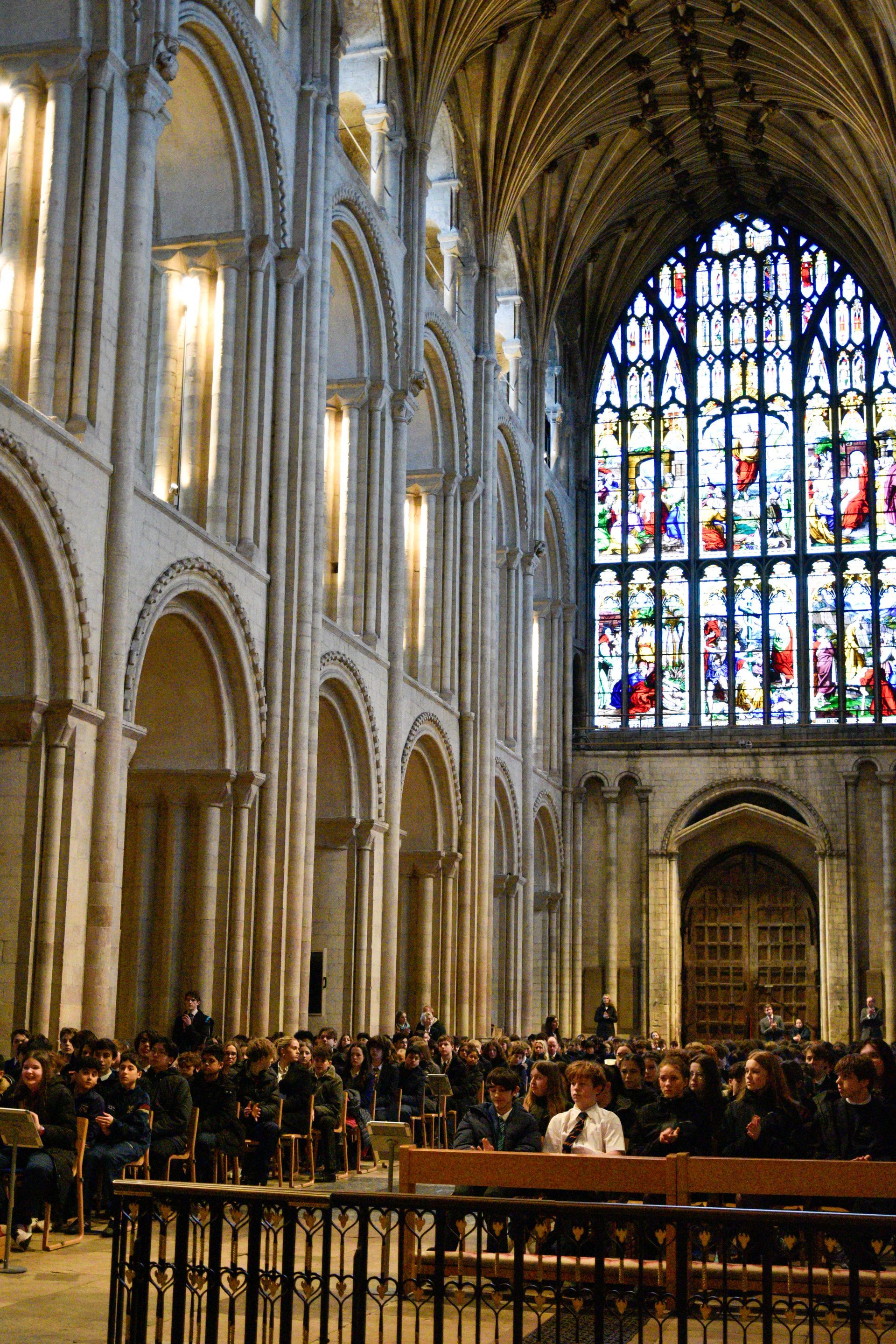
God saw all that he had made, and it was very good. And there was evening, and there was morning—the sixth day. Thus the heavens and the earth were completed in all their vast array. By the seventh day God had finished the work he had been doing; so on the seventh day he rested from all his work. Then God blessed the seventh day and made it holy, because on it he rested from all the work of creating that he had done. (Genesis 1:31 – 2:3) Well done for getting to Friday, everyone; we’re nearly at half term. Sometimes the days of January and February can feel a bit gloomy and cold; if you’ve been feeling like that at all, then spare a thought for some parts of Devon and Cornwall, where it has rained every day this year, and for the residents of Aberdeen, where the sun has disappeared completely for three weeks. When things are like this, there’s a danger that one day just runs into another. I came across this poem recently: Monday is a foggy haze, Tuesday is a frantic daze. Wednesday drags its heavy feet, Thursday thinks of food to eat. Friday shouts, "I'm finally free!" Saturday is a shopping spree. Sunday hides behind the door, And then we start the mess once more. I’m sure none of us really wants life to be like that – a foggy haze or a frantic daze, a mess that just keeps repeating itself. There is some wisdom from the very beginning of the Bible, and which I think can help us here (we heard it in our reading just now). We’re told that on the seventh day God “rested from all his work”. But he doesn’t just collapse, exhausted, on a heavenly sofa and start playing Candy Crush Saga on his phone for the entire weekend. It’s more optimistic than that. “God blessed the seventh day and made it holy , because on it he rested from all the work of creating that he had done.” The opening chapters of Genesis want, more than anything, to teach us some lessons for life – and a couple of lessons for us to learn here are that rest is important and days can be holy . Rest is important . You might feel that’s so obvious it doesn’t need saying – especially if right now you’re feeling ready for a rest. But this might just be something to remember for the future – for a time when your days are no longer dictated by school routines and timetables, and when the phrase ‘work/life balance’ starts to mean something. I had an experience of this myself when I went to university and for the first time I could do what I wanted, when I wanted. The thing was, I always had work that needed doing, and I just sort of did it all the time whenever I had spare moments. I noticed there were certain times when I found it really difficult to work – it was so hard to get going – often on Sundays, in fact. In my third year I made what felt like a bold decision. I decided to try out the Sabbath principle in Genesis; I stopped doing work on Sundays. And it worked for me. It didn’t make any difference to my overall output – I didn’t fall behind – and what was more, I was happier. A simple, perhaps an obvious lesson: rest is something we need to do, just as work is something we need to do. Days can be holy . The word ‘holy’ here means simply ‘set apart’ – which is to say that some days are different to others; they have a particular purpose. We are at a time of year where there is a confluence of special days in the calendar. For one thing it’s Valentine’s Day tomorrow, a day for telling people we love them. Tuesday is Pancake Day; be aware as well that for Muslims it’s the beginning of the holy month of Ramadan. For Christians, Wednesday is Ash Wednesday, the beginning of Lent – a time set apart for serious thinking about our habits and attitudes. After we return from half term it will be the Hindu festival of Holi, which celebrates brightening Spring Days and the triumph of good over evil. Whether you consider yourself an observer of these days or not, it is good to be aware of them; partly, of course, so that you can understand the people around you who are observing these holy days; but also to learn the principle that we do need red-letter days in our calendars – it is a human necessity – otherwise life becomes a foggy haze. Perhaps start with this half-term; see the days ahead of you as set apart, special, more than just Candy-Crush-on-the-sofa time. Remember that the word “holiday” itself is the words ‘holy’ and ‘day’ joined together. I started with a rather pessimistic poem; I want to finish with a more optimistic one. This is called ‘Mela’, which is the Sanskrit word for ‘festival’. Listen to the reading; listen to the hymn. Today it is a holy day. Let us think of him Who guided us, and brought us From darkness into light. Into sudden morning, out of darkest night. Let us eat together; let us take our ease. Let us throw our weapons down. Here, we are at peace. And before I finish, a little bit of good news: the sun has come out in Aberdeen, and the forecast is sunshine all day tomorrow…
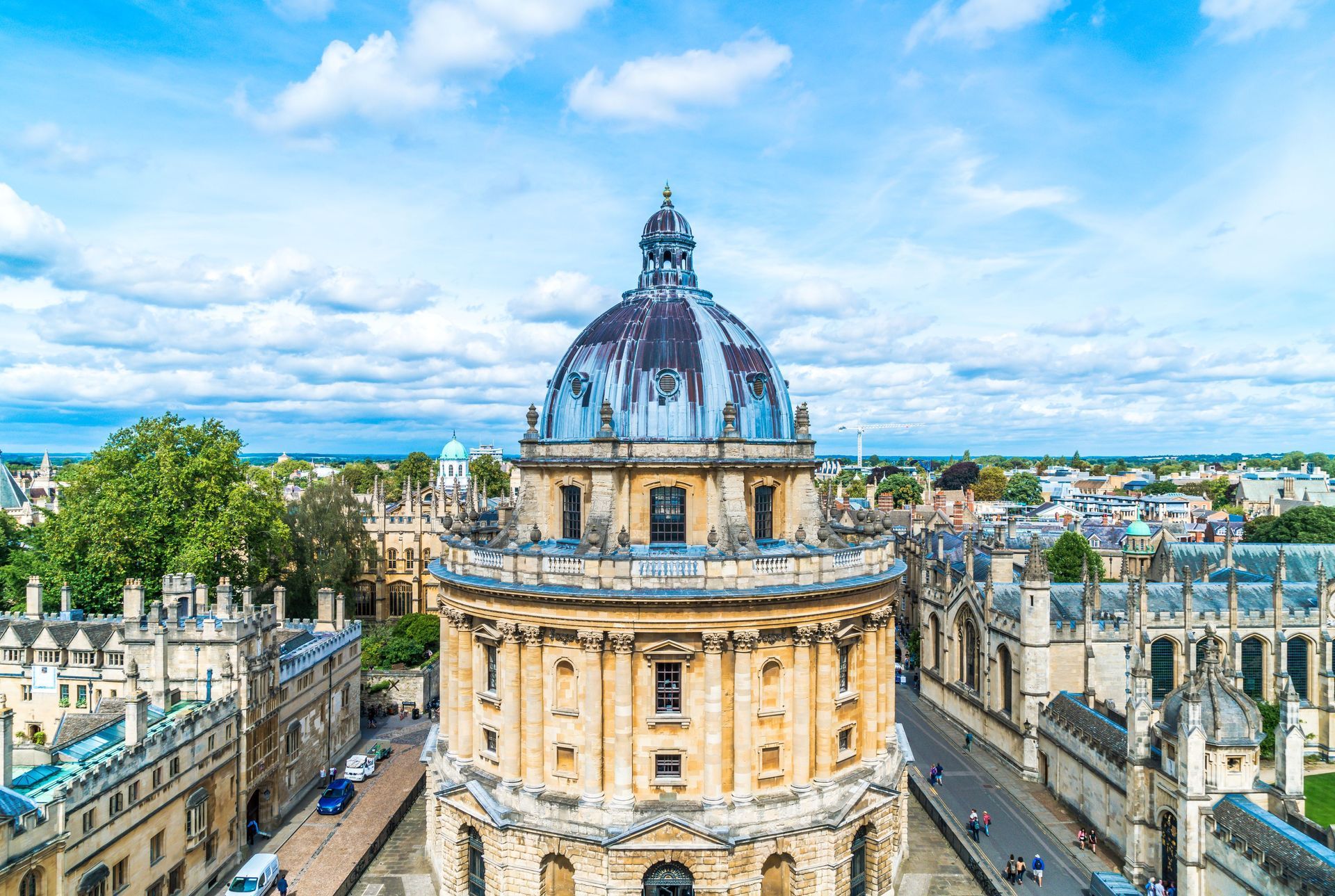
170 Norwich School applications have been sent to UCAS (universities and colleges admissions service) this academic year. As is the norm at this point in the year, many universities (including medical schools and leading London universities such as LSE and Imperial) are still making decisions on which applicants to offer places to. We will share more successes later this term and at the start of next term. We congratulate all pupils on their university offers and offers for apprenticeships and degree apprenticeships received so far. We hope these pupils will understand that the size of the Upper 6 year group means we cannot celebrate publicly all offers. The offers listed here have been chosen to include those for the most competitive courses and to give the school community a taste of the huge variety of courses and institutions that Norwich School pupils apply for. The school’s Apply Plus Programme is run by Mr Pearce. It supports pupils applying to academic courses that require admissions tests and/or interviews. Apply Plus offers so far this cycle: Arthur Dannatt – Mathematics at the University of Warwick Ben Griffiths – Classics at the University of Oxford Melissa Hawkings – Music at the University of Cambridge Celeste Horsman – English Language and Literature at the University of Oxford Thomas Hsia – Computer Science at University of Warwick Thomas Irvine – Medicine at the University of Cambridge Georgia Lloyd – Psychological and Behavioural Sciences at the University of Cambridge Adit Raje – Physics at the University of Oxford Charlotte Scott – Modern and Medieval Languages at the University of Cambridge Emile Verschoor – Natural Sciences at the University of Cambridge Sydney Wylie (ON) – English at the University of Cambridge STEM: Ethan Buskell – Mechanical Engineering at the University of Bath Josie Dixon – Marine Biology at the University of St. Andrews Jeremy Lo – Computer Science at the University of Manchester Humanities: Daisy Massey – Journalism Studies at the University of Sheffield Edith Martin – Liberal Arts at King’s College London (KCL) Alice Strike – History at University of Durham Social Sciences: Rosie Pank – Politics and Sociology with Study Abroad at the University of Exeter Jack Paterson – Business and Management at the University of Durham Sophie Scott – Law at the University of York Languages: Isla Bowles – French and Spanish at University College London (UCL) Tristan Mackay – Philosophy and Modern Languages at the University of Bristol Lily Mei McGruddy-Lo – Japanese at the University of Leeds Creatives: Hollie Blackham – Interior Design at the University for the Creative Arts (Canterbury) Rachel Dean – Drama at the University of Warwick Hettie Holden – Architecture at the University of Sheffield Sport: Nick Conway – full rowing scholarship to University of Washington, USA William Faircloth – full soccer (football) scholarship to University of Wisconsin, USA Niamh Rushton – Sport Management and Coaching with professional placement at University of Bath
Meet the Team
Click on the images to read individual biographies.

